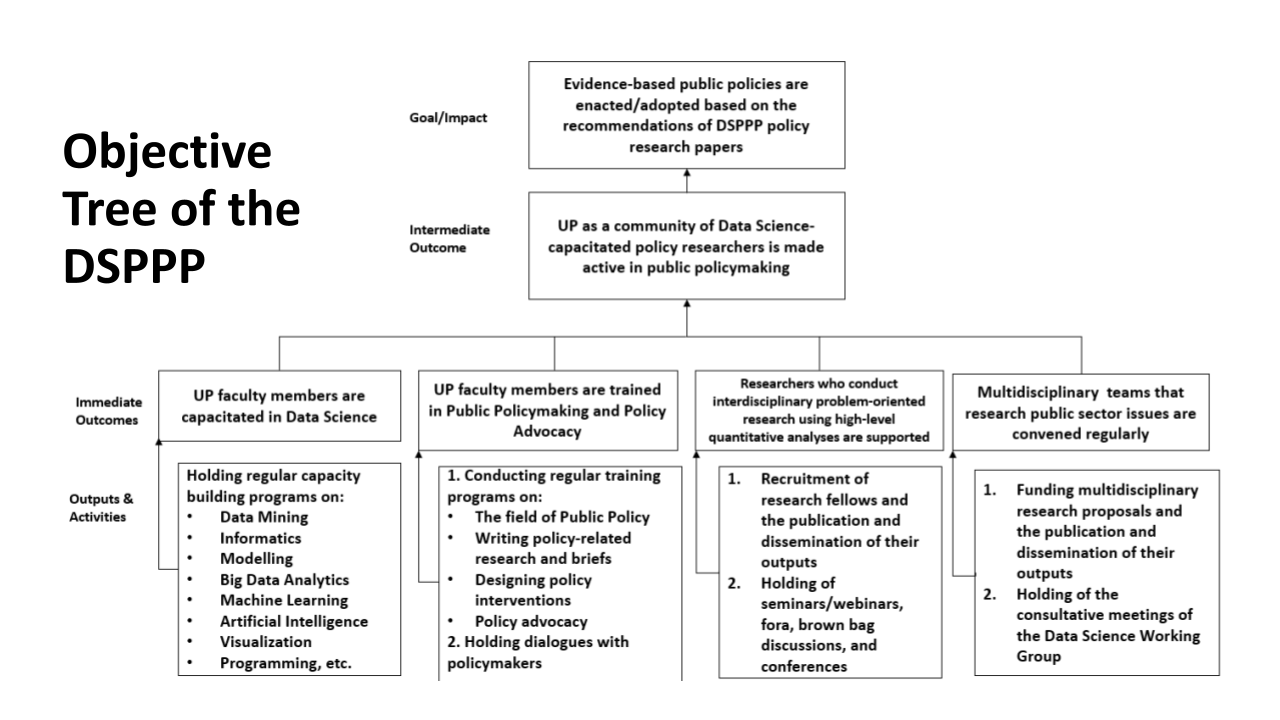DSPPP at a Glance
Rationale
Data science can help understand some of the country's most vexing problems in the public sector, especially when information is available. Nearly all aspects of governance operate using complex systems made up of networks of interrelated, interdependent, and multicontextual factors. The most innovative tools of data science and analytics have opened up new possibilities for empirical examination of social problems best studied within the complex systems framework.
As such, the Program on Data Science for Public Policy was established as a a series of research projects and interconstituent unit (CU) research engagement activities for various agendas of national public policy. It generally seeks to build capacity and craft research agenda toward applied data science analytics through complex systems frameworks.
Objectives
DSPP has three objectives:
First, it aims to build the capacity of UP faculty in data science and apply this learned skill to public policy and governance.
Second, it seeks to engage a community of researchers within the university and encourage the pursuit of interdisciplinary problem-oriented research using high-level quantitative analyses.
Finally, it strives to convene multidisciplinary teams of social scientists, humanists, and scientists to research issues in the public sector.

Convenor and Staff

Dr. Ebinezer R. Florano
Convenor

Pedro CK J. Madarang, Jr.
Junior Office Assistant

Lilian Jimenez-Marfil
Junior Research Analyst

Raphael Justin C. Portuguez
Senior Office Assistant